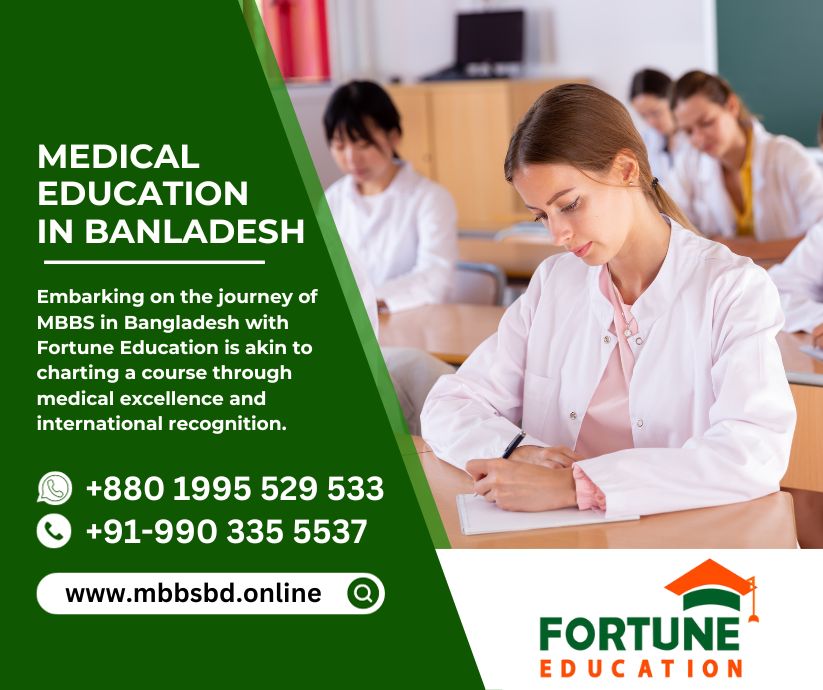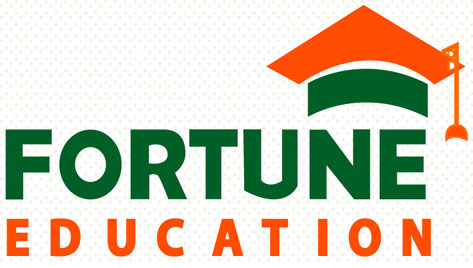Official Name: The People’s Republic of Bangladesh
State Religion: Islam however other fundamental religions to be specific to Hinduism, Buddhism, Christianity are drilled in peace and concordance.
State Language: Bangla
ional Anthem: The initial ten lines of “Amar Sonar Bangla”. composed by Nobel Laureate Rabindranath Tagore.
National Flag: Consists of a circle hued red all through its zone, laying on a green rectangular foundation. The length to width proportion of the square shape is 10:6 and the circle has a span of one-fifth of the length.
National Emblem: The national blossom “Shapla” (Nymphaea-nouchali) laying on water, having on each side an ear of paddy and being surmounted by three associated leaves of jute with two stars on each side of the takes off.
Capital: Dhaka
Nationality: Bangladeshi
Name of Currency: Taka (TK)
Categories:
Notes:Taka 1000, 500, 100, 50, 20, 10, 5, 2 and 1
Coins: Taka 5, 2, 1 and Paisa 50, 25, 10, 5, 2 and 1
Land Location: Between 20°34′ and 26°38′ north scope and somewhere in the range of 88°01′ and 92°41′ east longitude.
Limit: North: India
West: India
South: Bay of Bengal
East: India and Myanmar
Zone: 56977 sq. miles or 147570 sq. km.
Regional Water: 200 nautical miles.
Nourishment in Daily Life. Rice and fish are the establishments of the eating routine; multi-day without a dinner with rice is almost incomprehensible. Fish, meats, poultry, and vegetables are cooked in zesty curry ( torkari ) sauces that fuse cumin,
coriander, cloves, cinnamon, garlic, and different flavors. Muslims don’t devour pork and Hindus don’t expend meat.
Progressively normal is the planning of ruti, an entire wheat roundabout flatbread, early in the day, which is eaten with curries from the prior night. Likewise critical to the eating routine is dal, a thin soup in view of ground lentils, chickpeas, or different vegetables that is poured over rice.
A sweet custom made yogurt normally completes a dinner. A run of the mill dinner comprises of an expansive bowl of rice to which is included little parts of fish and vegetable curries.
Breakfast is the supper that differs the most, being rice-or bread-based. A most loved breakfast dish is panthabhat, extra cool rice in water or drains blended with gur (date palm sugar). Nourishment is eaten with the correct hand by blending the curry into the rice and after that get-together segments with the fingertips. In city eateries that take into account nonnatives, individuals may utilize flatware.
Three dinners are expended day by day. Water is the most widely recognized drink. Prior to the supper, the correct hand is washed with water over the eating dish.
With the spotless knuckles of the correct hand the inside of the bowl is rubbed, the water is disposed of, and the bowl is loaded up with sustenance. After the feast, one washes the correct hand once more, holding it over the exhausted bowl.
Tidbits incorporate organic products, for example, banana, mango, and jackfruit, and additionally puffed rice and little browned sustenance things. For some men, particularly in urbanized areas and bazaars, no day is finished without some sweet tea with drain at a little tea slow down, now and then joined by desserts.
Nourishment Customs at Ceremonial Occasions. At weddings and on imperative occasions, nourishment assumes a critical part. At occasion or formal capacities, visitors are urged to eat to their ability. At weddings, a typical sustenance is biryani, a rice dish with sheep or hamburger and a mix of flavors, especially saffron.
On uncommon events, the rice utilized is one of the better, more slender grained composes. On the off chance that biryani isn’t eaten, a total multicourse dinner is served: nourishments are conveyed out consecutively and added to one’s rice bowl after the past course is done.
An entire supper may incorporate chicken, angle, vegetable, goat, or hamburger curries and dal. The last piece of rice is done with yogurt ( doi ).
On other vital events, for example, the Eid occasions, a goat or cow is butchered on the premises and curries are set up from the new meat. A portion of the meat is given to relatives and to poor people.
Awesome esteem is set on advanced education, and the individuals who have college degrees and expert capabilities are agreed to high status.
In provincial regions the open doors for people with such experience are constrained; in this manner, most instructed individuals are amassed in urban territories.
Bangladesh has various fantastic colleges in its biggest urban zones that offer both undergrads through post-graduate degrees. The most conspicuous colleges, a large portion of which are state bolstered, including Dhaka University, Rajshahi University, Chittagong University, Jahangir Nagar University, Bangladesh University of Engineering and Technology, and Bangladesh Agricultural University.
Rivalry for college confirmation is extraordinary (particularly at Dhaka University) and affirmation is subject to scores got on secondary school examinations held yearly, as in the British framework
of training. College life in Bangladesh can be troublesome. A four-year degree may really expect five to eight years to finish because of incessant college closings.
The understudy bodies and resources of colleges are intensely politicized along national political partisan principals. Challenges, strikes, and sporadic political gathering based brutality are normal, as understudy bunches play out national political motivation on their grounds and strive for individuals.
For all intents and purposes, each college understudy thinks that it is simpler to survive the framework by turning into an individual from the understudy wing of a political gathering.
While the colleges are the scenes of political battle, they are additionally focuses on scholarly and social inventiveness.
Understudies may acquire brilliant preparing in all fields, including expressions of the human experience, law, medication, and building. Colleges are added to some degree like islands where a portion of the normal guidelines of social connection is loose.
For instance, male-female connection on the grounds is more open and less checked than in the public eye in general. Move and theater introductions are normal, as are scholarly discussions.

Medical education in Bangladesh has gained significant recognition for its quality and affordability, making it an attractive option for both local and international students. Here are key aspects of medical education in Bangladesh:
Medical Colleges: Bangladesh has numerous medical colleges, including government and private institutions. Government medical colleges are highly sought after due to their affordability and quality of education. Private colleges also offer good quality education, though fees might be higher.
MBBS Program: The primary medical degree is the Bachelor of Medicine, Bachelor of Surgery (MBBS). The MBBS program in Bangladesh usually spans 5 years, followed by a mandatory internship of 1 year, which is essential for the practice of medicine in the country.
Curriculum and Teaching Methods: The curriculum is generally similar to that of other South Asian countries, following guidelines of the Bangladesh Medical and Dental Council (BM&DC). It includes theoretical classes, practical lab sessions, and clinical rotations in various departments.
Medium of Instruction: The medium of instruction in medical colleges is English, especially for international students, which makes it accessible to a wider range of students.
Clinical Training: Clinical training is a significant part of medical education, and students get hands-on experience in affiliated hospitals.
Eligibility and Admission: For local students, admission to government medical colleges is highly competitive, requiring excellent grades in secondary education and a good score in the medical college admission test.
Private colleges have different admission criteria. International students need to meet specific eligibility criteria and might have to clear an entrance examination or provide scores of exams like NEET (for Indian students).
Affordability: Compared to many Western countries, medical education in Bangladesh is relatively affordable, even in private colleges. This makes it a popular choice for international students, especially from neighboring countries.
Recognition: Graduates from medical colleges in Bangladesh are recognized in many countries. However, international students should ensure that the degree is recognized in their home country. Graduates often have to clear exams like USMLE, PLAB, or FMGE to practice in countries like the USA, UK, or India.
Postgraduate Opportunities: There are also opportunities for postgraduate medical education in Bangladesh, including MD, MS, and various diploma courses in different specialties.
Challenges and Opportunities: While medical education in Bangladesh is growing in popularity, students may face challenges like cultural differences, varying standards of living, and differing medical practices. However, the experience can be enriching with exposure to a diverse patient population and diseases.
Medical education in Bangladesh offers a blend of quality education, clinical exposure, and affordability, making it a viable option for many aspiring medical professionals.
Culture: Bangladesh has a rich and diverse culture which is reflected in the architecture, culture, literature, music, painting, clothing, discourse etc. Even in this era of rock ‘n’ roll, B
angladeshi culture is still being cherished and respected by the people of all over the world. Even the culture of the tribes is rich and diverse too. Clothing, one of the most important aspect of the culture of Bangladesh, defines the Bangladeshi people very skillfully.
Saree — a finely embroidered cloth worn by the Bangladeshi woman and made by the skilled hands of Bangladeshi artisans — is now a global fashion trend. Festivals, held throughout the year with great zeal and zest, play a significant role in our culture. Some festivals are so intensely rooted in our cultural and social base that they are still being continued after centuries.
Some festivals are based on social and political significances with marking our communal and national value, some are religious, and some are even observed seasonally. Bangladeshi people have so many reasons to cheer their life and soul. This is why this land is called the Land of Festivals.
The official Language of Bangladesh is Bangla (or, Bengali). Dated even before the introduction of Christ, Bangla was generally talked in this locale, and now talked by in excess of 200 million individuals everywhere throughout the world.
It has a different tongues with various accents, articulations and minor syntactic changes in various locale in Bangladesh. In view of utilization, Bangla is separated in two structures: sadhu bhasha (formal dialect) and cholito bhasha (normal dialect).
In the event that deciding on second dialect, most Bangladeshi individuals picked English as they have down to earth productivity in English and its intelligent utilization in like manner circumstance. Aside from our official dialect, there are a noteworthy number of innate dialects are talked by the clans of Bangladesh. The major and surely understood innate dialects are Garo, Khashia, Magh, Manipuri, Munda, Chakma, Tipra and so forth.
In the matter of confidence and conviction, the greater part of Bangladeshi populace is Muslims. The rest of the populace is comprised of Hindus, Buddhists, Christians, and others.
Despite the fact that religion is one the real thing that establishes human character, in Bangladesh, there exists no limit between the general population of different religions. In satisfaction, pity, or even festival, we live here like the never-ending kin of a typical homeland.
With some great Islamic building legacy, Muslims in Bangladesh are interesting for their serene qualities and commitments.
Exceptionally old conventional root and proceeding with confidence is as yet keeping the Hindu culture and custom in Bangladesh as special as the neighboring nation. The deep rooted foundation of Buddhism in Bangladesh is plainly recognizable in a considerable lot of our archeological marvels.
In any case, the ceremonial routine with regards to Buddhism is as yet flawless and as astounding the same number of different nations. Despite the fact that, the time of Christianity in Bangladesh began amid the late sixteenth to mid seventeenth century, the association and harmony of the Bangladeshi Christian populace is well-manufactured; also about the fellowship as one country is whole.
Fortune Education, Dhaka, Bangladesh Authorized representative of medical colleges and their one stop services
Fortune Education, based in Dhaka, Bangladesh, is an authorized representative of various medical colleges and offers one-stop services for students aspiring to pursue medical education. Their role as an authorized representative encompasses several key services:
Medical College Admissions: Fortune Education assists students in gaining admission to various medical colleges, especially in countries like Bangladesh, India, Nepal, the Philippines, and Central America. They provide detailed information about colleges, courses, eligibility criteria, and admission processes.
Guidance and Counseling: They offer counseling services to help students choose the right medical college and course based on their academic profile, financial situation, and career aspirations.
Application and Documentation Assistance: The organization helps students with the application process, including filling out forms, preparing necessary documents, and ensuring that all admission requirements are met.
Entrance Exam Preparation: For colleges requiring entrance exams, they may offer guidance and resources to help students prepare for these exams.
Visa Processing Support: Fortune Education assists with the visa application process for students going abroad for their medical education, ensuring compliance with the requirements of the destination country.
Accommodation and Travel Arrangements: They also help in arranging accommodation and travel for students, making the transition to a new country or city smoother.
Pre-Departure Briefing: Students are often provided with a pre-departure briefing that includes information


